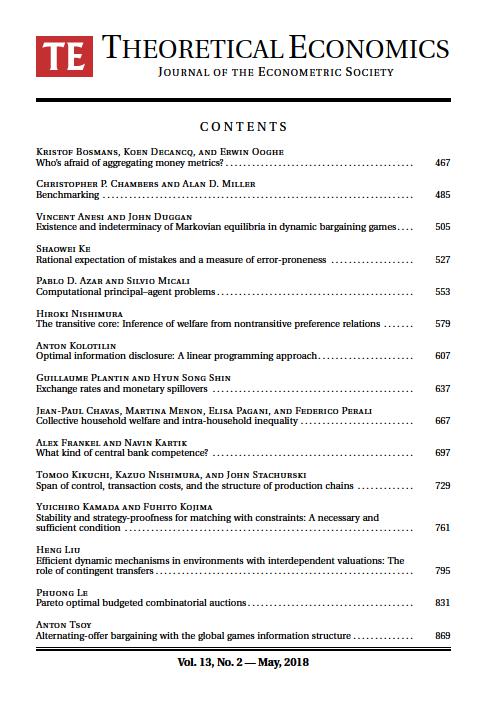Optimal information disclosure: A linear programming approach
Abstract
An uninformed sender designs a mechanism that discloses information about her type to a privately informed receiver, who then decides whether to act. I impose a single-crossing assumption, so that the receiver with a higher type is more willing to act. Using a linear programming approach, I characterize optimal information disclosure and provide conditions under which full and no revelation are optimal. Assuming further that the sender's utility depends only on the sender's expected type, I provide conditions under which interval revelation is optimal. Finally, I show that the expected utilities are not monotonic in the precision of the receiver's private information.




